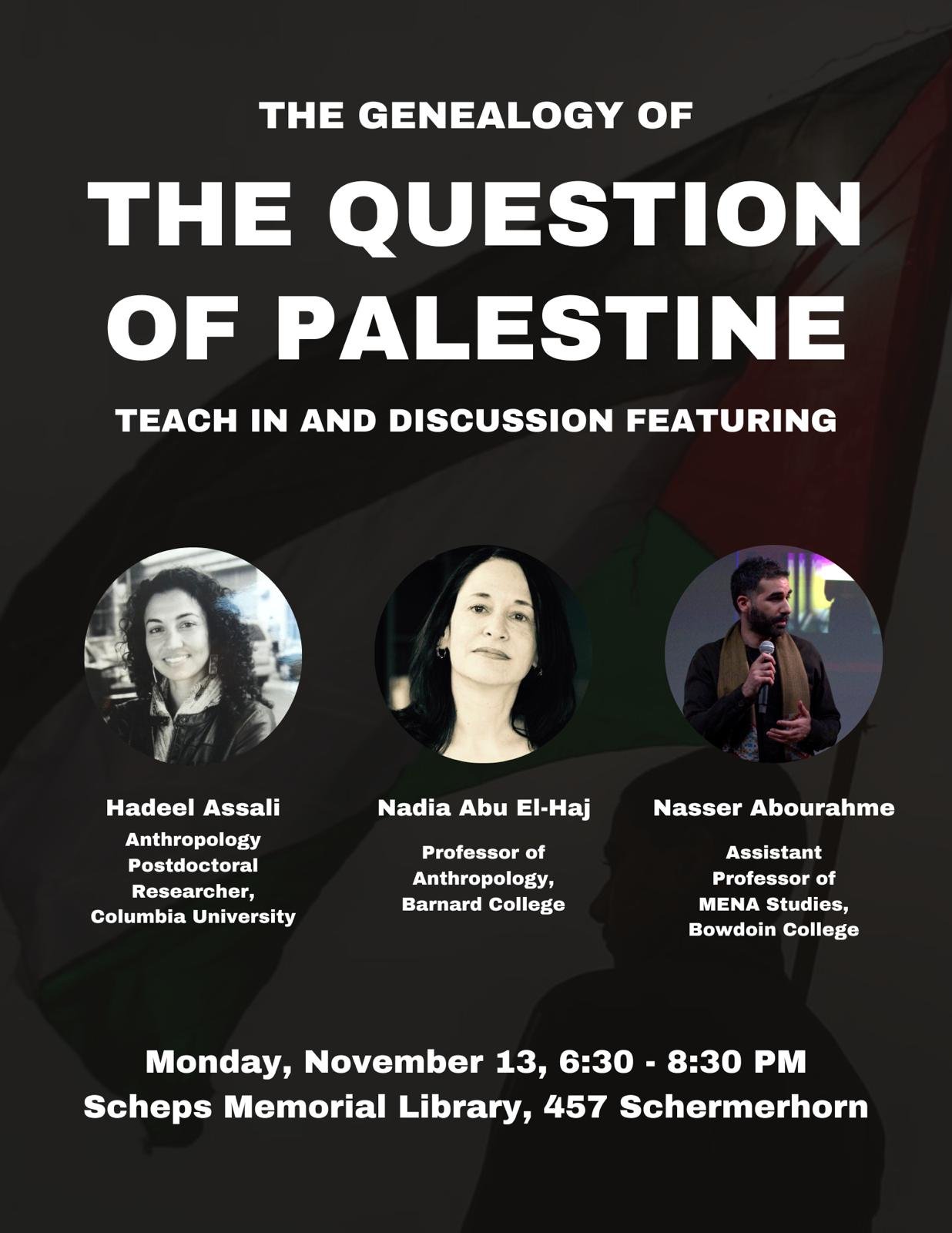Please note that attendance is limited to CU affiliates and that seating will be available on a first come, first served basis.
Advanced registration is required.

Please note that attendance is limited to CU affiliates and that seating will be available on a first come, first served basis.
Advanced registration is required.

Join New York University's Faculty for Justice in Palestine for a conversation with Nadia Abu El-Haj, Sinan Antoon, Lou Cornum, Chenjerai Kumanyika, Zachary Lockman and Helga Tawil-Souri.
In-person attendance is limited to current NYU students, faculty and staff and a remote option will be provided for non-affiliates. For more info + to register, click here.
Join the Post-Conflict Cities Lab and GSAPP MS and PhD Students for a talk with Nora Akawi (The Cooper Union) and Léopold Lambert (The Funambulist).
Nora Akawi is a Palestinian architect and an assistant professor at The Cooper Union. She focuses on erasure and bordering in settler colonialism and works at the intersection of architecture with border studies, cartography, and archive theory. Nora previously taught at GSAPP, where she was the director of Studio-X Amman since 2012, and the founding director of the Janet Abu-Lughod Library and Seminar since 2015. Read more.
Léopold Lambert is the editor-in-chief of The Funambulist, a platform that engages with the politics of space and bodies. He is a trained architect, as well as the author of four books that examine the inherent violence of architecture on bodies, and its political instrumentalization at various scales and in various geographical contexts. Read more.
Please note that in-person attendance is limited to GSAPP affiliates and that seating is first come, first served. Other CUID holders and members of the public can attend via Zoom.
Going to MESA? Be sure to check out, “Acoustic Ecologies of the Middle East,” on Saturday, November 4 at 11am. Ali Musleh will present his paper, “A Musicology of Settler Colonialism,” as part of the panel.
ABSTRACT
This paper explores how settler-colonial sonic spheres in Palestine translate topologies of experience into topologies of power. My focus will be on Israel’s use of remote and autonomous weapons, particularly drones, the Iron Dome and artificial intelligence, as atmotechnics productive of violent compositional beats that place the sensing bodies of the colonizer and the colonized in processual proximity to war. My argument is that such machining of experience is meant to individuate forms of life by hacking the nervous system, turning fear into a neural implant that can be engaged through giving war a musical character. Drawing on martial and affect theory, as well as theories of the flesh, I show how settler-colonial violence individuates forms of life according to an economy of pain that conditions Israelis’ experience of “the quiet” on the relentless invasion and hacking of the Palestinian sensorium.
6 pm (CAIRO TIME)
Please click the link below to register for the zoom webinar:

CPS congratulates faculty member, Timothy Mitchell, William B. Ransford Professor of Middle Eastern, South Asian, and African Studies, on receiving the Grain of Sand Award, a career award from the American Political Science Association, Interpretive Methodologies and Methods unit. The award honors a scholar whose contributions demonstrate creative and sustained engagement with questions of enduring political importance from an interpretive perspective.
On Monday, 23 October 2023, the Center for Palestine Studies and the Society of Fellows and Heyman Center for the Humanities hosted Saree Makdisi for a talk about his recent book, Tolerance Is a Wasteland: Palestine and the Culture of Denial (University of California Press, 2022), and commentary on the 7 October 2023 attacks on Israel and the ongoing war on Gaza.